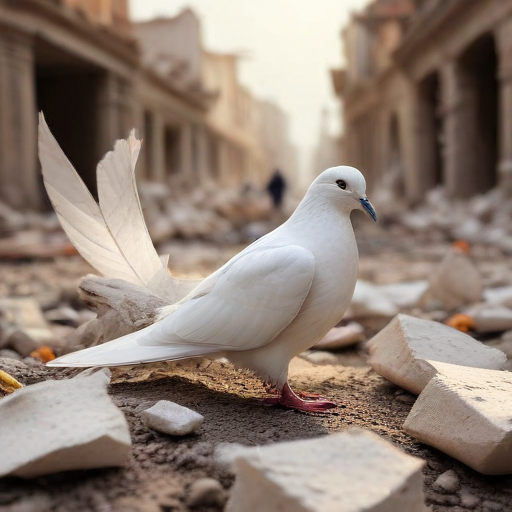Following the implementation of a ceasefire at 4 AM, residents from southern Lebanon, the Beirut suburbs, and the Bekaa Valley began returning home after months of enforced displacement, as reported by the UN refugee agency, UNHCR. Early morning traffic was notably heavy on the highway from Beirut to the south, indicating a swift return of the displaced population.
This development follows a period of escalating violence along the UN-patrolled Blue Line, which separates Hezbollah militants in Lebanon from Israel. The conflict intensified in September, resulting in the tragic loss of thousands of civilian lives and displacing over 886,000 individuals, according to the International Organization for Migration (IOM).
In response to the humanitarian crisis, UNHCR dispatched an aid convoy to Baalbek, delivering essential supplies to approximately 3,100 people. The support included blankets, mattresses, winter jackets, and solar lamps, among other necessary items. The agency expressed its commitment to assisting those affected throughout the winter and to help them rebuild their lives.
UNICEF Executive Director Catherine Russell emphasized the profound impact of the conflict on families, particularly children. She stressed the importance of maintaining peace and ensuring safe returns for displaced individuals. Alongside her, World Health Organization (WHO) Director-General Tedros Adhanom Ghebreyesus also welcomed the ceasefire, urging its immediate implementation, particularly in light of the conflict’s devastating toll on Lebanon’s healthcare system.
In stark contrast, conditions in Gaza remain dire, with UN agencies reporting ongoing bombardments and a worsening humanitarian situation. Many areas have been under siege for over 50 days, severely limiting access to medical care and essential supplies. The WHO reported alarming conditions at Kamal Adwan Hospital, which is running critically low on supplies, further emphasizing the urgent need for humanitarian access and relief.
The dire nutritional status of children in Gaza has reached critical levels, with thousands admitted for acute malnutrition. The World Food Programme noted that the closure of bakeries in central Gaza has left families without access to bread, which many rely on as a staple food source.
As the chapter of conflict appears to close on Lebanon, there shines a small glimmer of hope for the future. The recent ceasefire offers a crucial opportunity to not only end the violence but also to address the pressing humanitarian needs of the communities affected by the conflict. The international community’s involvement and commitment to peace are ever more vital to ensuring the safety, health, and well-being of the vulnerable populations in both Lebanon and Gaza. Sustainable recovery is possible with concerted efforts toward peace and humanitarian aid.
